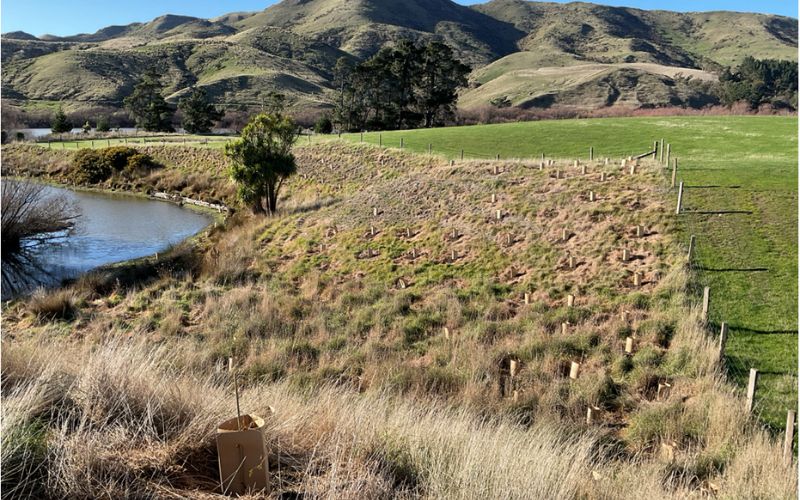Catchment care and erosion plantings benefit Marlborough
At risk areas in Marlborough are benefitting from plantings through Council’s Catchment Care and Hill Country Erosion programmes.
This year more than 17,000 plants were established covering nearly four hectares of wetland or riparian areas.
More than three kilometres of fencing has been completed with support from the Catchment Care programme which began in 2020 and works with Marlborough communities to invest in protecting and enhancing catchments that are degraded or at risk of degradation.
Key objectives are to protect and improve water quality, reduce erosion and sediment and protect sensitive catchments.
Programme advisor Rosanne Homewood said Council had exceeded the target for the project regarding plants established and areas planted and was on target for fencing.
“A big challenge this summer was the drought which delayed fencing and planting and meant some landowners couldn’t do work due to increased financial constraints or adverse conditions,” she said. “This year saw a 100 per cent increase in landowners involved in fencing or planting projects compared to last year.”
Having new landowners engage had been a highlight of the programme she said.
Working alongside the Catchment Care project is advisor Jenny Buck who leads the Hill Country Erosion Programme. She works alongside landowners providing advice and funding for eroding or erosion prone hill country properties.
Some landowners choose to fence off badly eroded areas, retiring it from grazing and establishing native vegetation on their properties.
“I have spoken to several landowners who have committed to retiring non-productive areas,” she said. “They get a real kick out of watching the native plants grow and then love the bird life that returns.”
For the 2023/24 season, 2,917 poplar and willow poles were planted and 19 hectares of exotic woodlots established.
Native reversion plantings totalled 20,157 hectares.


